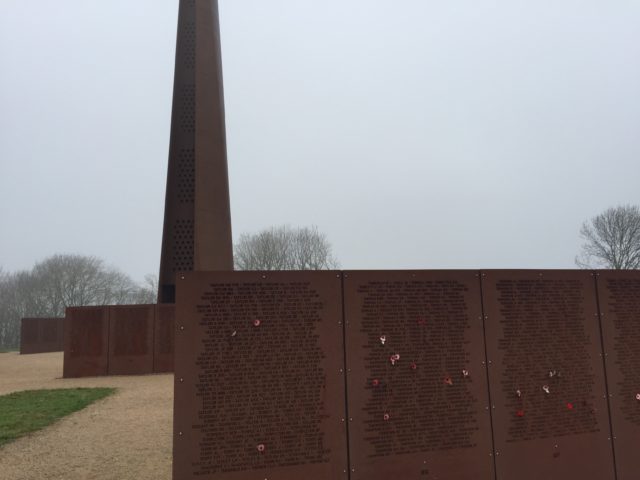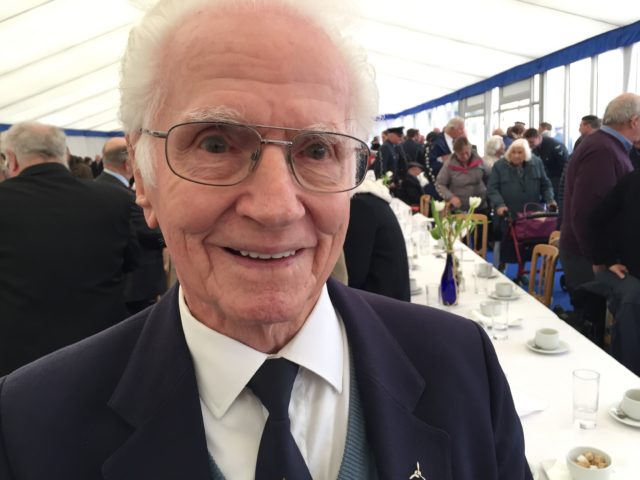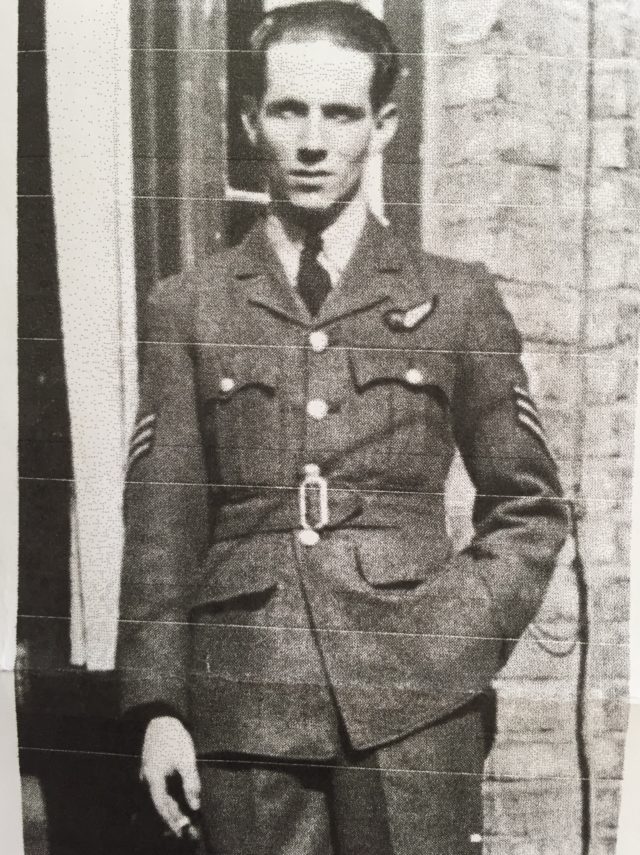Bomber Command veterans from around the globe have gathered to officially open a centre to honour the crews which helped turn the tide of the Second World War.
The International Bomber Command Centre, in Lincoln, has the UK’s tallest war memorial, which at 31.09m is the wingspan of a Lancaster bomber.
It was a gorgeous opening to proceedings this morning when we heard from the angelic voices of the @MWChoirs #bombercommand #becauseweremember #ibccceremony #lovelincoln #ww2 #lestweforget #RAF #history pic.twitter.com/PpeKmBHdSf
— Int Bomber Command (@IntBCC) April 12, 2018
It also has a centre telling the story of Bomber Command, and walls of names engraved with the names of 57,821 young men and women who died while serving or supporting Bomber Command in the Second World War.
Lincolnshire earned the title of Bomber County as 27 stations, a third of all those in the UK, were based there.
Bomber Command played the central role in the strategic bombing of Nazi Germany during the Second World War, targeting airbases, troops and industrial complexes connected to the war effort.

Almost half of the 125,000 who served as aircrew lost their lives. The average age of those serving was 23.
Bomber Command saw more men killed in one catastrophic raid on Nuremberg than in the entire Battle of Britain.
More than 300 veterans from around the world attended a special ceremony to open the International Bomber Command Centre on Thursday.

Among them was 93-year old Len Manning, who was just 19 years old when he served as a rear gunner on a Lancaster Bomber within 57 Squadron.
His plane was shot down by a German night-fighter over northern France on his third ever mission, targeting a railway goods yard.
“I was burnt and the parachute was burning,” he said. “I finished up with the resistance for three months until I was liberated by the Americans, having had lots of skirmishes.
“If a plane was shot down they (the Germans) knew exactly how many were in the crew.”

He said his first ever mission was just a fortnight earlier, and his second was in daylight hours before the night mission.
Four of his crew of seven were killed when the plane went down.
He said that after he landed he did not know where he was, walked eight miles and collapsed on the doorstep of a farm.
“Fortunately they took me in as they were members of the resistance,” he said.
Mr Manning, who lives near Sudbury, Suffolk, said of the opening of the centre: “It’s nice to see all the old boys.”
A day for reflection and remembrance…#veterans #bombercommand #becauseweremember #ibccceremony #ww2 #lestweforget #RAF #history pic.twitter.com/9YwNFrAVNJ
— Int Bomber Command (@IntBCC) April 12, 2018
Organisers said the opening of the International Bomber Command Centre is likely to be the last formal gathering of those from the Second World War, the youngest of whom is aged 92.
The opening included a ceremony compered by John Sergeant with musical performances and speakers including Defence Minister Lord Howe.
Planned fly-pasts were cancelled due to poor visibility.
Nicky Barr, chief executive of the International Bomber Command Centre, said she was “hugely proud” to see the number of veterans at the opening.
“I’ve just been given the most enormous hug by a 97-year-old gentleman in tears to just say thank you and I think that really summarises it,” she said.
“Nobody has fought to tell their stories like my team has, and it matters.
“They’ve been forgotten, and now they’re not.”
Alongside the centre is a digital archive project, which has so far preserved 190,000 documents including personal photos, letters and diaries.
